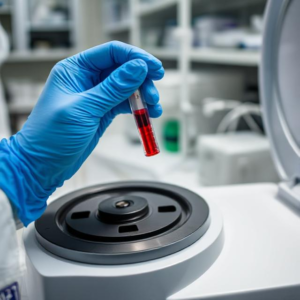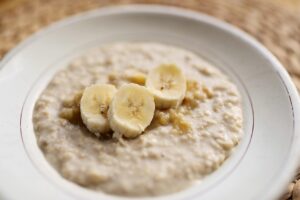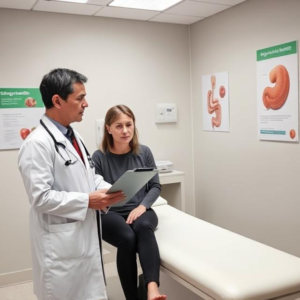Introduction:
Symptoms, and Treatment of Diarrhea Naturally at Home? is only for you. Diarrhea is a common yet potentially serious condition that affects millions of people worldwide. It is typically characterized by frequent, loose, or watery stools, and can often be accompanied by discomfort, urgency, and other symptoms. While diarrhea is usually a temporary condition, it can sometimes signal more severe underlying health issues. Fortunately, many natural remedies exist to treat and manage diarrhea effectively, offering relief without the need for pharmaceuticals in many cases. All aspects are discussed here in the blog What Are the Causes, Symptoms, and Treatment of Diarrhea Naturally at Home?
This article ‘What Are the Causes, Symptoms, and Treatment of Diarrhea Naturally at Home?’ will explore the causes of diarrhea, the symptoms associated with it, and natural treatments that may help alleviate its effects. For the Symptoms, and Treatment of Diarrhea Naturally at Home, read the complete blog.
1. Understanding Diarrhea 
Diarrhea refers to an increase in the frequency, fluidity, or volume of stool. It is classified based on duration:
- Acute diarrhea: This typically lasts for a few days to a week and is often caused by viral or bacterial infections.
- Chronic diarrhea: If diarrhea lasts for more than four weeks, it is considered chronic. Chronic diarrhea can be a symptom of more complex health conditions, such as inflammatory bowel diseases or malabsorption disorders.
The frequent passage of loose or watery stools is often the most recognizable sign of diarrhea. This condition can also be accompanied by nausea, vomiting, abdominal cramps, bloating, fever, and dehydration. To understand the Symptoms, and Treatment of Diarrhea Naturally at Home, read the complete blog.
2. What Causes Diarrhea?
Diarrhea can be triggered by a variety of factors, including infections, food intolerances, medications, and chronic conditions. The following are some of the most common causes of diarrhea:
a. Infections
Infections caused by viruses, bacteria, or parasites are among the leading causes of diarrhea. These pathogens typically enter the body through contaminated food or water, causing gastrointestinal distress.
- Viral infections: Viruses such as rotavirus, norovirus, and enteric adenovirus are common culprits. These viruses are highly contagious and often cause outbreaks in communal settings like schools and nursing homes.
- Bacterial infections: Certain bacteria, including Salmonella, Escherichia coli (E. coli), and Campylobacter, can cause severe diarrhea. These infections often result from consuming undercooked meat, contaminated vegetables, or unclean water.
- Parasitic infections: Parasitic organisms like Giardia or Entamoeba histolytica can also lead to prolonged episodes of diarrhea. These infections are common in regions with poor sanitation practices.
b. Food Intolerances and Allergies 
Food intolerances or sensitivities can irritate the digestive system and lead to diarrhea. Common food triggers include:
- Lactose intolerance: Many individuals are unable to digest lactose, a sugar found in dairy products. Consuming milk or dairy products can cause bloating, cramping, and diarrhea.
- Gluten intolerance (Celiac disease): Gluten is a protein found in wheat, barley, and rye. In individuals with Celiac disease, eating gluten triggers an immune response that damages the lining of the small intestine, leading to diarrhea.
- Fructose and sorbitol intolerance: Some individuals have difficulty digesting fructose (a sugar found in fruits and some sweeteners) or sorbitol (a sugar alcohol used in sugar-free foods), which can result in diarrhea.
c. Medications 
Before medication you should know the Symptoms, and Treatment of Diarrhea Naturally at Home. Certain medications can interfere with normal digestion and trigger diarrhea as a side effect. These medications include:
- Antibiotics: While antibiotics are effective in treating bacterial infections, they can also disrupt the balance of beneficial bacteria in the gut, leading to antibiotic-associated diarrhea.
- Laxatives: Overuse of laxatives can cause dependency, leading to persistent diarrhea.
- Chemotherapy drugs: Cancer treatments, particularly chemotherapy, can cause gastrointestinal issues, including diarrhea.
d. Chronic Conditions
Several chronic health conditions can result in persistent or recurrent diarrhea, including:
- Irritable bowel syndrome (IBS): A functional disorder of the intestines that can cause abdominal pain, bloating, and changes in stool consistency, including diarrhea.
- Inflammatory bowel diseases (IBD): Diseases such as Crohn’s disease and ulcerative colitis involve inflammation of the gastrointestinal tract and can lead to chronic diarrhea, along with other symptoms like weight loss and fatigue.
- Celiac disease: This autoimmune condition causes an immune response to gluten and leads to damage in the small intestine, resulting in malabsorption and diarrhea.
- Thyroid disorders: Hyperthyroidism, an overactive thyroid, can speed up metabolism and cause diarrhea.
e. Stress and Anxiety
Stress can have a significant impact on the digestive system, leading to diarrhea in some individuals. The gut-brain connection is well-documented, and emotional stress can trigger gastrointestinal symptoms, including diarrhea, due to hormonal fluctuations and changes in gut motility.
3. Symptoms of Diarrhea 
The main symptom of diarrhea is frequent, loose, or watery stools. However, depending on the underlying cause, diarrhea can present with a range of additional symptoms, including:
- Abdominal cramps or pain: These may occur before or during bowel movements.
- Bloating and gassiness: Individuals may experience a sensation of fullness or bloating in the abdomen.
- Fever: A fever may accompany diarrhea if an infection is the underlying cause.
- Nausea and vomiting: These symptoms often accompany viral or bacterial infections.
- Dehydration: Diarrhea can lead to significant fluid loss, which can result in dehydration. Symptoms of dehydration include dry mouth, dizziness, dark urine, and decreased urine output.
- Blood in stools: In severe cases of diarrhea, such as those caused by bacterial infections or inflammatory bowel disease, blood may appear in the stool.
4. How to Treat Diarrhea Naturally
While diarrhea is often a self-limiting condition that resolves on its own, there are several natural remedies that can help alleviate symptoms and promote recovery. These remedies can be used in combination or as a standalone treatment, depending on the severity of the symptoms and the underlying cause.
a. Hydration
One of the most important aspects of managing diarrhea is maintaining adequate hydration. Diarrhea can cause rapid loss of fluids and electrolytes, which can lead to dehydration. To prevent dehydration, it’s essential to drink plenty of fluids, including:
- Water: Regular sips of water can help replace lost fluids.

- Herbal teas: Ginger, chamomile, and peppermint tea can soothe the digestive system and help prevent dehydration.
- Oral rehydration solutions (ORS): These solutions contain electrolytes like sodium and potassium, which are lost during episodes of diarrhea. ORS can be purchased over-the-counter or made at home with a mixture of salt, sugar, and water.
- Broths: Clear vegetable or chicken broths can provide hydration along with some nutrition.
b. Probiotics
Probiotics are beneficial bacteria that support gut health. They help restore the balance of good bacteria in the gut, which can be disrupted during episodes of diarrhea. Probiotics are available in supplement form and are also found in fermented foods, such as:
- Yogurt: Choose plain, unsweetened yogurt with a few leaves of mint..
- Kefir: A fermented milk drink that contains a wide variety of probiotics.
- Sauerkraut and kimchi: Fermented vegetables that contain probiotics.
Studies have shown that taking probiotics can reduce the duration and severity of diarrhea, particularly in cases caused by viral infections.
c. BRAT Diet 
The BRAT diet is a bland-food approach that may help alleviate diarrhea symptoms. BRAT stands for:
- Bananas: Easy to digest and can help replace lost potassium.
- Rice: A starchy food that can help firm up stools.
- Applesauce: Contains pectin, which can help to absorb excess of water in the intestines.
- Toast: Plain white bread, which is easy on the stomach.
This diet helps soothe the digestive system while providing easily digestible foods that are gentle on the gut.
d. Ginger and Peppermint 
Ginger has long been used as a natural remedy for digestive issues, including nausea, vomiting, and diarrhea. It has anti-inflammatory properties and can help soothe the stomach lining. Fresh ginger can be added to hot water or taken as a supplement.
Peppermint is also another the best herb known for its soothing effects on the digestive system. Peppermint tea or peppermint oil capsules may help reduce cramping and relieve symptoms of diarrhea.
e. Apple Cider Vinegar 
Apple cider vinegar (ACV) is believed to help restore the natural pH balance of the stomach and support digestion. Some individuals find that consuming a small amount of diluted ACV (one to two teaspoons in a glass of water) before meals can help reduce diarrhea symptoms.
f. Dietary Fiber 
Incorporating soluble fiber into the diet can help absorb excess fluid in the intestines, leading to firmer stools. Foods high in soluble fiber include:
- Oats
- Apples
- Carrots
- Sweet potatoes
- Psyllium husk (a natural fiber supplement)
It’s important to avoid insoluble fiber (found in foods like whole grains and leafy vegetables) during an active episode of diarrhea, as it can irritate the digestive tract.
g. Chamomile Tea
Chamomile has anti-inflammatory and antispasmodic properties that can help relieve abdominal pain and cramping associated with diarrhea. Drinking chamomile tea several times a day can provide soothing relief.
h. Fasting
Fasting for 12-24 hours may help give the digestive system time to rest and recover. However, it is important to continue drinking fluids during this time to avoid dehydration.
5. When to Seek Medical Attention 
While most cases of diarrhea resolve on their own, there are instances where medical attention is necessary. Seek medical help if:
- Diarrhea lasts for more than two days.
- There is blood or black stools in the diarrhea.
- Symptoms of dehydration occur, such as dizziness, dry mouth, or reduced urination.
- High fever (over 101°F/38.3°C) is present.
- Severe abdominal pain is experienced.
In these cases, a healthcare provider may recommend further testing, prescription medications, or other treatments.
Conclusion 
Diarrhea is a common digestive issue that can range from mild to severe, depending on the underlying cause. Understanding the potential causes, symptoms, and natural treatments can help individuals manage the condition effectively without the need for pharmaceutical intervention. Staying hydrated, using probiotics, following a bland diet, and incorporating soothing herbal remedies are all effective natural approaches to alleviating diarrhea symptoms.
As always, if symptoms persist or worsen, it’s essential to consult a healthcare provider to rule out any underlying medical conditions that may require specialized treatment. By taking a proactive approach to gut health and employing natural remedies, most people can recover from diarrhea quickly and with minimal disruption to their daily lives.
If you want to keep yourself healthy then you should keep the home doctor book at your home

